Private Education Matters







The National Labor Relations Board (Board) issued a decision this month in Stericycle, Inc., 372 NLRB No. 113 (2023), which evaluates challenges to employer work rules, such as policies in employee handbooks on recording and confidentiality. Under Section 7 of the National Labor Relations Act (NLRA), employees have the right to unionize, to join together to advance their interests as employees, and to refrain from such activity. It is unlawful for an employer to interfere with, restrain, or coerce employees in the exercise of their rights.
The Board’s previous precedent for evaluating work rules was a balancing test that weighed an employee’s rights under Section 7 of the NLRA against the employer’s legitimate justifications associated with the work rule. The Board felt this balancing test gave too much weight to employer interests.
In Stericyle, the Board instead focused on making sure work rules do not chill employees’ exercise of their statutory rights for fear of discipline or discharge if they violate them. The Board noted that there is an increased potential for intimidation because employees have an economic dependence on their employment and do not want to be terminated for breaking any workplace rules. At the same time, employers have the right to maintain discipline and otherwise protect their legitimate and substantial business interests by evaluating employees’ workplace conduct. The Board’s decision in Stericycle is meant to balance those competing interests, by allowing employers leeway
to maintain rules of their own choosing that advance their business interests, while at the same time, making sure those rules are narrowly tailored to minimize or eliminate any coercive potential.
Under the Board’s new test, ambiguous work rules must be interpreted from the perspective an employee who wishes to engage in protected activity, but who also wishes to avoid the risk of being disciplined or discharged for violating this rule. The test first requires a showing that an employee could reasonably interpret a rule to restrict or prohibit protected activity. If this showing is made, the work rule is presumptively unlawful. This is true even if the employer did not intend for its rule to restrict employees’ rights.
If the rule is established as presumptively unlawful, the employer then has the burden to show the rule advances a legitimate and substantial business interest and the employer is unable to advance that interest with a more narrowly tailored rule.
The Board ruled that the evaluation of work rules should be done on a case-by-case basis, examining the specific language of the particular rules and the employer interests actually invoked to justify them. The Board noted that the context and specific wording of the rules should also be considered. These rules apply retroactively to all pending cases.
Stericycle, Inc., 372 NLRB No. 113 (2023).
Note: This case is relevant for schools as they review their employee handbook policies. LCW is prepared to assist schools in reviewing and revising their employee handbooks to ensure the rules are not restricting employee rights under the NLRB.
On July 21, 2023, the U.S. Department of Homeland Security (DHS) announced a new final rule, which provides an alternative procedure for employers to verify employment eligibility.
The alternative procedure took effect on August 1, 2023, and is available for employers who are participants in good standing in E-Verify, a web-based system through which employers electronically confirm the employment eligibility of their employees.
Employers must verify the employment eligibility of newly hired employees within three business days of their first day of employment and must re-verify the employment eligibility of existing employees as required by law and regulation. Generally, employers are required to verify employment eligibility through a physical, in person examination of the employee’s Form I-9 documents. Under the new final rule, the alternative procedure provides a substitute to this physical, in person examination requirement.
According to the final rule, the alternative procedure is as follows:
1. Collect from the employee copies (front and back, if the document is two-sided) of Form I–9 documents or an acceptable receipt and examine such documents to ensure that the documentation presented reasonably appears to be genuine;
2. Conduct a live video interaction with the employee presenting the document(s) to ensure that the documentation reasonably appears to be genuine and related to the employee. During the live video interaction, the employee must present the same document(s) that the employee transmitted to the employer in Step 1;
3. Indicate on the new Employment Eligibility Verification Form I–9 (effective August 1, 2023 – July 31, 2026), by completing the corresponding box, that an alternative procedure was used to examine documentation to complete Section 2 or for reverification, as applicable. If using the prior Employment Eligibility Verification Form I–9 (October 19, 2019 – October 31, 2023), indicate in Section 2 in the Additional Information field that the alternative approach was used;
4. Retain, consistent with applicable regulations, a clear and legible copy of the documentation (front and back if the documentation is twosided); and
5. In the event of a Form I–9 audit or investigation by a relevant federal government official, make available the clear and legible copies of the identity and employment authorization documentation presented by the employee for document examination in connection with the employment eligibility verification process.
Adopting the alternative procedure is entirely optional. However, employers who choose to adopt the alternative procedure must either (a) adopt it consistently for all employees or (b) adopt it just for employees who perform remote work only and continue to apply the physical, in person examination procedures to any and all employees who work onsite or in a hybrid capacity. If employers choose to differentiate between remote only workers and onsite and hybrid workers in this manner, such practice cannot be adopted for a discriminatory purpose or to treat employees differently based on a protected characteristic.
While the alternative procedure does not have an expiration date, the DHS Secretary has the authority to amend or cancel it. The final rule from the DHS is available here
On August 1, 2023, DHS also launched a new version of the Employment Eligibility Verification Form, which reflects a number of updates, including a new box that eligible employers must check if the employee's Form I–9 documentation was examined under the alternative procedure
set forth above. The new Employment Eligibility Verification Form is available on the U.S. Citizenship and Immigration Services website, and employers may begin using the new Form immediately. On November 1, 2023, the new Employment Eligibility Verification Form will become standard and the old form will expire.
The California Legislature has been busy this session! A number of bills that will affect private schools if they become law are currently working their way through the Legislature. The following are some of the key bills that could take effect on January 1, 2024.
AB 452 would eliminate the time limits for an individual who experienced childhood sexual assault occurring on or after January 1, 2024 to commence a claim for the recovery of damages. AB 452 applies to claims brought by the individual against (1) the person who committed the childhood sexual assault, and (2) a person or entity who owed the individual a duty of care if the person or entity’s wrongful or negligent act was a legal cause of the individual’s childhood sexual assault. Though an individual who experienced childhood sexual assault on or after January 1, 2024, would generally be able to bring a claim for damages at any time, AB 452 includes separate, specific requirements for individuals who bring claims on or after their 40th birthday.
AB 659, or the Cancer Prevention Act, would declare that it is California’s public policy to recommend that pupils be fully immunized against human papillomavirus (HPV) before admission or advancement to the eighth grade. AB 659 would require private elementary and secondary schools to provide every pupil admitted to or advancing to the sixth grade and their parents or guardians a written notification advising that the pupil be fully immunized against HPV before admission or advancement to the eighth grade.
AB 299 would require the California Department of Education to make certain anti-hazing resources available on its website on or before July 1, 2024, including (1) a model anti-hazing policy, and (2) “[r]esources on hazing prevention for professional development purposes and for increasing awareness among pupils, school staff, and community members of the dangers of hazing.” AB 299 would encourage private schools serving students in any grades
Kindergarten through twelve to use these anti-hazing resources “for professional development purposes and for increasing awareness among pupils, school staff, and community members of the dangers of hazing.”
AB 299 defines hazing as “a method of initiation or preinitiation into a student organization or student body that is likely to cause serious bodily injury to a former, current, or prospective pupil of a school.” AB 299 expressly excludes “customary athletic events or school-sanctioned events” from the definition of hazing.
Senate Bill 616 (SB 616) – Sick Days: Paid Days Accrual and Use
SB 616 would make several changes to employee paid sick leave entitlements under California law, including the following:
• Under existing law, employers must permit employees to accrue paid sick leave at a rate of either 1) one hour per every 30 hours of work or; 2) establish an alternate accrual method as long as employees have no less than 24 hours (or 3 days) of accrued paid sick leave by the 120th calendar day of employment or each calendar year, or in each 12-month period. SB 616 would modify the employer’s alternate sick leave accrual method option to require that an employee have no less than 56 hours (or 7 days) of accrued paid sick leave by the 280th calendar day of employment or each calendar year, or in each 12-month period.
• Under existing law, no accrual or carryover of paid sick leave to the following year of employment is required if employers give employees the “full amount of leave” of 24 hours (or 3 days) of accrued paid sick leave at the beginning of each year of employment, calendar year, or 12-month period. SB 616 would increase
the “full amount of leave” to 56 hours (or 7 days) of paid sick leave in order for employers not to permit paid sick leave to carry over to the following year of employment.
• SB 616 would modify existing law by increasing the minimum paid sick leave cap from 48 hours (or 6 days) to 112 hours (or 14 days).
Assembly Bill 524 (AB 524) – Discrimination: Family Caregiver Status
AB 524 would amend the California Fair Employment and Housing Act (FEHA), which is enforced by the Civil Rights Department, to prohibit employment discrimination based on “family caregiver status.” AB 524 defines “family caregiver status” as a person who contributes to the care of one or more family members, who are defined as a spouse, child, parent, sibling, grandparent, grandchild, domestic partner, or a previously identified “designated person,” as set forth under the California Family Rights Act (CFRA). AB 524 states it would not, however, create an obligation on employers to provide employees special accommodations because of family caregiver status.
Assembly Bill 575 (AB 575)
Under existing law, California Paid Family Leave (PFL) provides up to eight (8) weeks of wage replacement benefits to workers who take time off work:
1. To care for a seriously ill child, spouse, parent, domestic partner, grandparent, grandchild, sibling, or parent-in-law;
2. To bond with a minor child within one (1) year of the birth or placement of the child in connection with foster care or adoption; or
3. To participate in a qualifying exigency related to the covered active duty or call to covered active duty of the individual’s spouse, domestic partner, child, or parent in the Armed Forces of the United States.
AB 575 would expand PFL to provide benefits to workers who take time off work to bond with a minor child within one (1) year of assuming responsibilities of a child in loco parentis. Under AB 575, an "in loco parentis" relationship exists “when a person undertakes care and control of a child in the absence of such supervision by the natural parents and in the absence of formal legal approval,” such as the day-to-day responsibilities to care for and financially support a child.
AB 575 would delete the restriction that an employee is not eligible for PFL if another family member is ready, willing, able, and available to provide care for the same period of time, and would eliminate an employer’s ability to require employees to take up to two (2) weeks of earned but unused vacation leave before receiving PFL benefits.
Assembly Bill 1076 (AB 1076) – Contracts in the Restraint of Trade: Noncompete Agreements & Senate Bill 699 (SB 699) – Contracts in Restraint of Trade
AB 1076 and SB 699 both address noncompete clauses and contracts.
AB 1076 would codify existing case law, as set forth in Edwards v. Arthur Andersen LLP (2008) 44 Cal.4th 937), by providing that it is unlawful to include a noncompete clause in an employment contract, or to require an employee to enter into a noncompete contract. AB 1076 would require employers to notify, no later than February 14, 2024, any employee who signed an employment contract with a noncompete clause or entered into a noncompete contract after January 1, 2022, that such noncompete obligations are void. AB 1076 would require employers to provide this notice in writing delivered to the employee or former employee’s last known address and email address.
AB 1076 would also codify existing case law prohibiting noncompete clauses even in contracts where the person restrained from engaging in a lawful profession, trade, or business is not a party to the contract. AB 1076 would make a violation of these noncompete clause prohibitions an act of unfair competition pursuant to the Unfair Competition Law (UCL), which makes various practices unlawful and makes a person who engages in unfair competition liable for a civil penalty.
Similarly, SB 699 would prohibit an employer from entering into a noncompete contract or a contract with a noncompete clause with an employee or prospective employee. SB 699 would also establish that noncompete clauses and contracts are void regardless of where and when they were signed, and would prohibit current and former employers from attempting to enforce noncompete clauses and contracts regardless of whether the contract was signed and the employment was maintained outside of California.
SB 699 would make it a civil violation to enter into or attempt to enforce a noncompete contract or a contract with a noncompete clause, and entitle an employee, former employee, or prospective employee to bring a private action for injunctive relief and/or the recovery
of actual damages for a violation of SB 699, and, if they prevail, entitles them to recovery of reasonable attorney’s fees and costs.
Senate Bill 731 (SB 731) – Employment
Discrimination: Unlawful Practices: Work from Home: Disability
SB 731 would amend the California Fair Employment and Housing Act (FEHA), to make it an unlawful employment practice for an employer, before requiring an employee who is working from home to return to work in person, to fail to provide at least 30 calendar days’ advance notice to the employee. The bill would also require that notice to those employees include certain information, including their employer’s obligation to engage in the interactive process and the employees’ rights to reasonable accommodation.
SB 848 would entitle employees to take up to five (5) days of reproductive loss leave (which may be taken nonconsecutively) per reproductive loss event, up to a total amount of 20 days of reproductive loss leave within a 12-month period. A reproductive loss event means “the day or, for a multiple-day event, the final day of a failed adoption, failed surrogacy, miscarriage, stillbirth, or an unsuccessful assisted reproduction.” SB 848 would require the leave be taken within three (3) months of the reproductive loss event. Reproductive leave loss would be unpaid, but employees would be able to use their accrued leave balances, such as paid sick leave or vacation leave. The bill would require employers to maintain employee confidentiality relating to reproductive loss leave.
SB 848 would also make it an unlawful employment practice for an employer to refuse to grant a request by an eligible employee to take reproductive loss leave, and for an employer to retaliate against an eligible employee because the employee exercised the right to reproductive loss leave or gave information or testimony as to reproductive loss leave.
Assembly Bill 1423 (AB 1423) - Product Safety: PFAS: Artificial Turf or Synthetic Surfaces
AB 1423 would, effective January 1, 2024, require a manufacturer or installer of artificial turf, to notify the potential purchaser at the earliest possible date if the artificial turf contains regulated PFAS. The bill would also prohibit, effective January 1, 2024, a private school serving pupils in any grades Kindergarten through twelve, from purchasing or installing artificial turf containing regulated PFAS. AB 1423 would further prohibit the manufacture, distribution, or sale of artificial turf containing PFAS effective January 1, 2026.
Note:
September 14, 2023 is the last day for the California Legislature to pass bills, and October 14, 2023, is the last day for the Governor to sign or veto the passed bills. Bills may also become law if the Governor fails to sign or veto them. These bills may require mid-year updates to school handbooks and mid-year notices to employees and families. For updates on which bills will become law, be sure to check out LCW’s Legislative Roundup, which will be distributed in October 2023, and attend LCW’s Private Education Legislative Roundup Webinar on November 16, 2023, which you may register for here.
Patrick Skahan, a Senior Counsel in the Los Angeles office, provides advice and counsel to our public agency and nonprofit clients in all matters pertaining to business and facilities, employment law, discrimination, and litigation.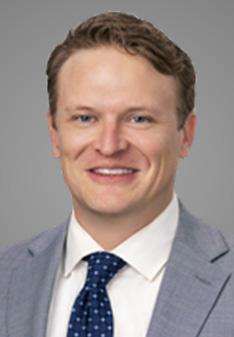 Simone Del Barco, an Associate Attorney in the Los Angeles office, provides advice and counsel to our clients in all matters pertaining to labor and employment law with experience in all phases of litigation.
Simone Del Barco, an Associate Attorney in the Los Angeles office, provides advice and counsel to our clients in all matters pertaining to labor and employment law with experience in all phases of litigation.
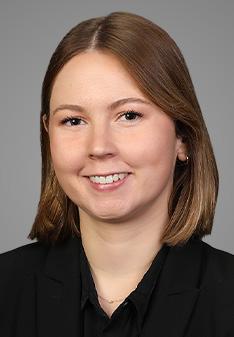

On June 20, 2023, the California Department of Public Health (CDPH) revised the definition of the term “COVID-19 Outbreak,” reducing the time period during which the COVID-19 cases must occur in order to trigger an outbreak.
Previously, the CDPH defined “COVID-19 Outbreak” to mean at least three (3) COVID-19 cases within a 14-day period among people who are linked through COVID-19 exposures in the workplace.
Now, the CDPH defines the term to mean at least three (3) COVID-19 cases within a seven (7)-day period who are linked through exposures in the workplace. The rest of the substantive requirements of the definition remain unchanged and operative.
As a reminder for employers concerning their obligations in the event of a “COVID-19 Outbreak”, should an employer determine that such an outbreak exists, the employer must take the following steps: (1) make no-cost COVID-19 testing available to the exposed group (i.e., all the employees at the work location, working area, or common
area where any of the COVID-19 cases were present during their infectious period); (2) ensure that employees within the exposed group wear face coverings when indoors or when outdoors and less than six (6) feet from another person; and (3) ensure that any employee who had a “close contact” exposure to one of the COVID-19 cases be tested for COVID-19 three to five days after the close contact and test negative or be excluded from the workplace pursuant to the return to work requirements of the Permanent Standards (See 8 CCR 3205(f)(2)).
The Permanent Standards for COVID-19 Prevention, which were promulgated on December 15, 2022, rely on the CDPH definition of the term “COVID-19 Outbreak” for setting regulatory requirements for employers in the event of an outbreak. (See 8 CCR 3205.1(a).) Consequently, employers should note the revised definition and update their COVID-19 Prevention Programs (CPP) as necessary to reflect the change.
Note:
LCW attorneys are familiar with the regulatory requirements related to COVID-19 Outbreaks and are available to assist employers in modifying their policies and practices to comply with these requirements in the event of an outbreak.
With the start of the 2023-2024 school year, and the recent uptick in COVID-19 cases throughout the country, many schools are wondering what the current COVID-19 guidance is for students and employees at California private schools. The most recent guidance from the California Department of Public Health (CDPH) and the California Division of Occupational Safety and Health (CalOSHA) is captured below, but local requirements also may apply. Schools should contact legal counsel for guidance on any local requirements.
For students and employees who test positive for COVID-19, the current CDPH guidance is the same:
• Students/employees who test positive for COVID-19 must be excluded from the school for at least 5 days after start of symptoms or after date of first positive test if no symptoms.
• Isolation can end and the student/employee may return to the school after day 5 if symptoms are not present or are mild and resolving AND the student/employee is fever-free
for 24 hours without the use of a fever-reducing medication.
• If the student/employee has a fever, isolation must continue and the student/employee may not return to the school until 24 hours after the fever resolves.
• If a student’s/employee’s symptoms other than fever are not improving, they may not return to the school until their symptoms are resolving or until after day 10.
• Students/employees should wear face coverings around others for a total of 10 days.
So, if a student or employee tests positive, they must remain off campus for at least 5 days and can return if they have no symptoms or if their symptoms are mild or resolving, and they are fever-free for at least 24 hours, even if they are still testing positive. They must wear a face covering for a total of 10 days.
If an employee contracts COVID-19 in the workplace, CalOSHA states that employers should investigate and respond by taking the following steps:
• Determine when the COVID-19 case was last in the workplace, and if possible, the date of testing and onset of symptoms.
• Determine which employees may have been exposed to COVID-19 through a close contact.
• Provide written notification to all employees (and, if applicable, their union representatives) and independent contractors who were at the school at the same
time as the COVID-19 case during the infectious period of any potential exposures within one business day (and notify any other employer who has potentially exposed employees in the workplace).
• Make COVID-19 testing available to potentially exposed employees with a close contact at no cost and during working hours, with the exception of asymptomatic employees who recently recovered from COVID-19.
• Exclude employees with COVID-19 from the workplace until they are no longer an infection risk, and implement effective policies to prevent transmission after close contact. See above for instructions on when employees can return to the workplace.
• Investigate the exposure, whether workplace conditions could have contributed to the risk of exposure, and what corrections would reduce exposure.
There are no longer any state or federal requirements that schools provide COVID-19 sick leave pay, or that employers provide exclusion pay when an employee contracts COVID-19 from the workplace and is excluded from work during the applicable isolation period. Employees can use their sick leave or any personal leave they may have for that purpose, unless a school is electing to offer COVID-19 leave or exclusion pay. Local requirements may differ.
Current CDPH guidance recommends schools consider a general notification to the entire school community during times of elevated community transmission of COVID-19. Community notification of increased transmission can serve as a reminder for parents to monitor for symptoms, use available rapid testing/treatment options, and prevent further spread. CDPH has developed template letters for this purpose.
Prior CDPH guidance recommended that families notify the school if their child had COVID-19 and was on school grounds during their infectious period, and that schools in turn notified students who spent more than a cumulative total of 15 minutes (within a 24-hour time period) in a shared indoor airspace (e.g., classroom) with someone with COVID-19 during their infectious period. This is no longer included in the CDPH’s most up-to-date guidance, so schools are free to establish different notification protocols.
CDPH guidance also states that students who are exposed to others with COVID-19 may partake in all aspects of K-12 schooling including sports and extracurricular activities if they remain without symptoms.

The Internal Revenue Service (IRS) recently issued a warning regarding the Employee Retention Credit (ERC). The ERC is a complex tax credit available to certain businesses and tax-exempt entities affected by the pandemic. The IRS advises that applying for the credit requires careful review before filing. Further, they warn that there are numerous scams involving the ERC and businesses and tax-exempt organizations should be cautious of aggressive ERC marketing.
The ERC was enacted as part of the Coronavirus Aid, Relief, and Economic Security Act (CARES Act) in order to encourage employers to keep employees on payroll by providing employers with a tax credit refund on certain employment taxes paid by the employer, up to a certain amount, on qualified wages. The ERC applies to qualified wages paid between March 13, 2020 and December 31, 2021. Eligible employers may claim a credit of up to $5,000 for 2020 and $28,000 for 2021, for
each employee. Employers are eligible if they carried on a business or trade during 2020 or 2021 that was either (1) fully or partially suspended during 2020 or the first three quarters of 2021; (2) experienced a significant decline in gross receipts in 2020 or during the first three quarters of 2021; (3) or qualified as a recovery startup business. The deadlines for filing for the ERC are April 15, 2024, for 2020 tax periods and April 15, 2025, for 2021 tax periods.
Determining eligibility for the ERC requires a careful analysis of the school’s tax records and the specific circumstances surrounding the school during the pandemic (e.g. the specific dates of mandated closure). Incorrectly filing for the ERC may result in a school being required to repay the credit and the assessment of interest and penalties.
Schools should heed the warnings of the IRS and be wary of companies that advertise assistance in the ERC filing process. Schools should do their due diligence investigating these companies and should not provide confidential employee records or business information to these companies. LCW attorneys can assist in determining whether a school qualifies for the ERC.
Roundup
Thursday, November 16, 2023
10:00am - 11:00am
Many new laws affecting California private schools are set to take effect January 1, 2024. The LCW Legislative Roundup webinar will explain what private schools need to know about these new laws and how they may affect your school. Attendees will leave this webinar with insights on the impacts of the new laws, an understanding of new legal obligations, and helpful strategies to comply with the new laws.
Register here!
In September 2021, the Overbrook School for the Blind, a private school for the blind in Philadelphia, Pennsylvania, announced a new policy requiring all employees receive the COVID-19 vaccine, unless they were granted a medical or religious accommodation. The School did not offer a testing option for employees who did not want to receive the vaccine. If employees did not provide proof of vaccination by the end of November 2021 or did not receive a medical or religious exemption, they would be considered as having resigned from their employment.
Five black employees and one white employee (Plaintiffs) requested accommodations based on their religious beliefs. In response, the School’s HR director told each Plaintiff that the School did not question the sincerity of their religious beliefs; nonetheless, the School denied their requests for accommodations. Despite not receiving the vaccine, Plaintiffs showed up to work on November 29 and 30 and were barred from coming onto the grounds.
Plaintiffs sued the School, asserting religious, race, and disability discrimination claims, and a retaliation claim.
To make out a case for religious discrimination, employees must demonstrate: (1) they hold a sincere religious belief that conflicts with a job requirement; (2) they informed the employer of the conflict; and (3) they were disciplined for failing to comply with the conflicting requirement. As to what qualifies as a religious belief, the court adopted the following definition:
First, a religion addresses fundamental and ultimate questions having to do with deep and imponderable matters. Second, a religion is comprehensive in nature; it
consists of a belief-system as opposed to an isolated teaching. Third, a religion often can be recognized by the presence of certain formal and external signs.
The School argued that Plaintiffs broadly alleged that they held sincere religious beliefs, but they did not identify what those beliefs were. The Plaintiffs argued that requiring them to explain their religious beliefs was highly intrusive and they should have never been forced to divulge their personal beliefs to the School or in their legal complaint. The court agreed with the School and reasoned that without explaining the nature of their religious beliefs, Plaintiffs could not show that they held a sincere religious belief.
The Plaintiffs next claimed that they were discriminated against on the basis of their race. Specifically, the Plaintiffs argued a disparate treatment theory of racial discrimination: that the School intentionally created a policy that resulted in firing employees the overwhelming majority of whom were black.
All five black Plaintiffs said they applied for unemployment and none of them received any assistance because the School opposed it, but the School allegedly did not oppose or otherwise obstruct the successful application for unemployment by the white employee terminated. Similarly, the Plaintiffs alleged that the School did not provide the black plaintiffs with a bonus, but did provide the white Plaintiff with a bonus. The Plaintiffs alleged that the firing of the one white employee was an attempt to camouflage the School’s racist motives.
To make out a case for disparate treatment on the basis of race, the Plaintiffs must demonstrate:
(1) they are a member of a protected class; (2) they were qualified for the position they sought to attain or retain; (3) they suffered an adverse employment action; and (4) the action occurred under circumstances that could give rise to an inference of intentional discrimination.
The court allowed the five black Plaintiffs’ claims for disparate treatment to move forward because the Plaintiffs sufficiently plead facts about the unemployment and bonus payments that support an inference of discrimination.
The five black Plaintiffs also alleged a disparate impact theory of discrimination, arguing that the School adopted a vaccination policy that resulted in the discriminatory termination of the five black Plaintiffs.
Employment practices that have the unintentional effect of discriminating based on race are prohibited under Title VII. To establish a disparate impact case, the Plaintiffs must show that a neutral standard caused a significantly discriminatory pattern.
Here, the court found that the Plaintiffs alleged sufficient facts for a disparate impact claim. Specifically, they alleged that the School had a policy that had a disproportionate impact on them because of the prevalence of “vaccine hesitancy” among African Americans. They also alleged that while 36% of the workforce was black, the five black employees terminated pursuant to the vaccine policy constituted 83% of the workers terminated.
The Plaintiffs next brought a claim that their termination was based on the School’s perception of them as being disabled because they did not receive the COVID-19 vaccine.
To establish a case of disability discrimination, the Plaintiffs must show: (1) that they are disabled within the meaning of the Americans with Disabilities Act (ADA); (2) that they are otherwise qualified for the job, with or without reasonable accommodations; and (3) that they were subjected to an adverse employment decision as a result of the discrimination.
The Plaintiffs argued that they were “regarded as” having a disability because the School required them to receive the COVID-19 vaccine before they could return to work, and therefore treated them as if they were inherently unhealthy, disabled, permanently sick and contagious with COVID-19. The court ruled that the Plaintiffs failed to show how their vaccination status constitutes a physical or mental impairment under the ADA. Because Plaintiffs did not demonstrate that their COVID-19 vaccination status qualifies as a disability under the ADA, the disability discrimination claims were dismissed.
Finally, Plaintiffs argued that the School retaliated against them with respect to their religion, race, and disability claims. Title VII prohibits an employer from retaliating against an employee because the employee has opposed an unlawful employment practice or because the employee has made a charge, testified, assisted, or participated in any manner in an investigation, proceeding, or hearing.
To establish a case for retaliation, the Plaintiffs must show: (1) protected employee activity; (2) adverse action by the employer either after or contemporaneous with the employee’s protected activity; and (3) a causal connection between the employee’s protected activity and the employer’s adverse reaction.
Plaintiffs argued that applying for a religious accommodation was an instance of protected activity. The School argued that merely applying for the religious accommodation, rather than opposing the allegedly unlawful denial of a religious accommodation, did not constitute protected activity. The School also argued that there was no underlying connection between any protected activity and adverse action.
The court agreed with the School. The School’s actions were not done in retaliation for protected activity, but instead were actions taken consistent with the School’s vaccination policy. The Plaintiffs did not argue that the alleged interference with unemployment was done in retaliation for protected activity, which may have been more successful. Therefore, the court dismissed the retaliation claims.
Divine Equal. Righteous v. Overbrook Sch. for the Blind, (E.D. Pa. July 26, 2023) 2023 WL 4763994.
Note:
This case is relevant for private schools with COVID-19 vaccine mandates for employees and shows the variety of claims employees may bring against a school.


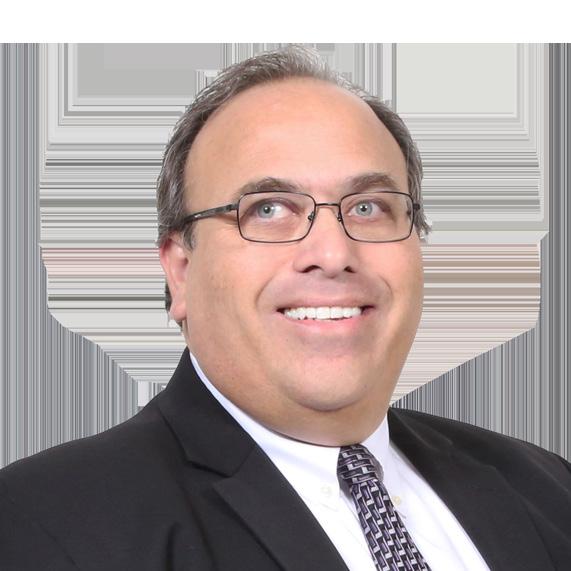

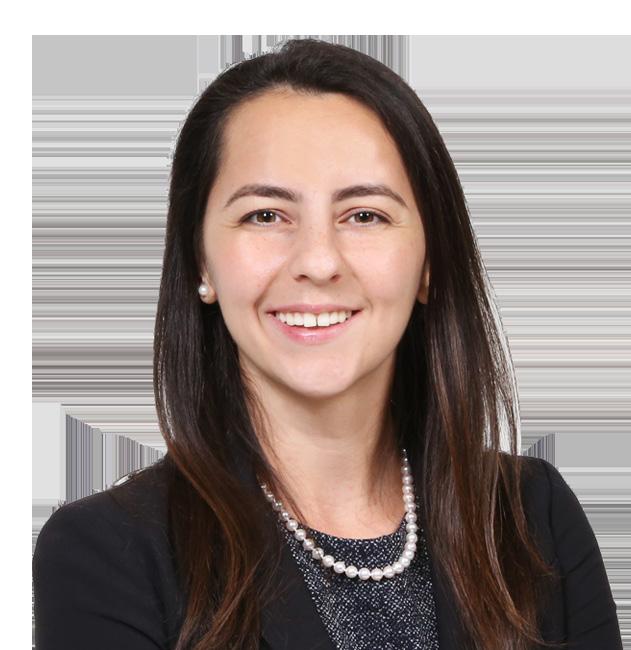

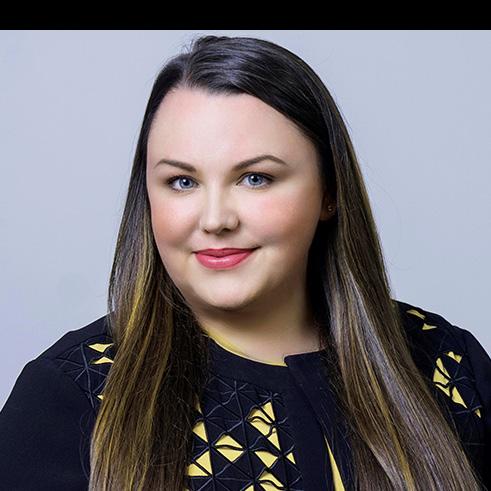
The musician Bob Marley once said “one good thing about music, when it hits you, you feel no pain”. At least eight former employees of S&S Activewear would disagree. S&S operated a 700,000 square foot warehouse in Reno, Nevada where many of its employees worked. The company permitted managers and employees to routinely play “sexually graphic, violently misogynistic” music throughout the warehouse. According to the male and female employees who sued, the song lyrics used offensive terms that denigrated women. Songs like “Blowjob Betty” by Too $hort contained “very offensive” lyrics that “glorifie[d] prostitution.” Likewise, “Stan” by Eminem described extreme violence against women.
The music overpowered operational background noise and was impossible to escape because it blasted from commercial-strength speakers placed throughout the warehouse. Sometimes employees placed the speakers on forklifts and drove around the warehouse, making it more difficult to predict—let alone evade—the music’s reach. The music allegedly served as a catalyst for some male employees, who frequently pantomimed sexually graphic gestures, yelled obscenities, made sexually explicit remarks, and openly shared pornographic videos. The music was particularly demeaning toward women, who comprised roughly half of the warehouse’s workforce, but some male employees also took offense. Despite “almost daily” complaints, S&S management defended the music as motivational and allowed it to be played for nearly two years, until litigation loomed.
The former employees filed suit, alleging that the music and related conduct created a hostile work environment in violation of Title VII. The district court granted S&S’s motion to dismiss and denied leave to amend the music claim. The district court reasoned that because the music was offensive to multiple genders, and no
one individual or group was targeted, there was no discrimination because of sex. The employees appealed to the Ninth Circuit.
An employee who brings a hostile work environment claim must show that the employer discriminated because of an employee’s membership in a protected group. The offensive conduct must be “sufficiently severe or pervasive to alter the conditions of employment.” There is no requirement that the harassing conduct only target an individual; nor does one protected class need to be treated differently than another to establish a Title VII hostile work environment violation.
Other U.S. Circuit courts have decided that a workplace saturated with sexually derogatory content can constitute harassment “because of sex” and that lyrics loaded with sexist slurs expose female employees to uniquely “disadvantageous terms or conditions of employment.” According to those precedents, the Ninth Circuit determined that the music at issue in this case was actionable conduct under Title VII.
The Ninth Circuit also disagreed with S&S that harassment because of sex had occurred since the music was offensive to both men and women. An employer cannot evade liability for a gender harassment claim by cultivating a workplace that is broadly hostile and offensive to both men and women. The Ninth Circuit remanded the case back to the district court for further consideration.
Note:
This case illustrates two important maxims of discrimination and harassment law. First, the Ninth Circuit has joined other Circuits to find that music or sound that pervades a workplace can create a hostile work environment under Title VII. Second, an employer has no “equal opportunity harasser” defense. The fact that employees of different protected classifications are impacted does not provide a defense to a Title VII claim.
Liebert Library is an online tool that provides our subscribers access to LCW’s extensive collection of reference materials. We offer 2 levels of subscription for Liebert Library at economical prices that will allow you to lower future legal costs for your school:

1. Basic Membership - access to digital and fully-searchable versions of our Administrator’s Guide to California Private School Law and its Compendium. You can search and reference the most up-to-date versions of these publications at any time. Consortium members receive a complimentary Basic Membership to the Library, where they can digitally access these materials.
2. Premium Membership - access to all of the benefits of our Basic Membership (see above), as well as the ability to download our entire collection of sample forms, policies and checklists in Word and PDF formats that can be used as templates for your school. We are also continually adding Model Policies that can be used to update existing school policies to our library. Premium Membership is only available to Consortium members. To learn more about the consortium program, contact Francesca Savellano at fsavellano@lcwlegal.com.
Register and begin exploring the Liebert Library site today!
The Save Women’s Sports Act (Act) was adopted by the Arizona legislature in September 2022, and stated that athletic teams or sports sponsored by public and private schools whose students or teams compete against a public school, must be expressly designated as one of the following, based on the biological sex of the students who participate on the team or in the sport: (1) males, men, or boys; (2) females, women, or girls; and (3) coed or mixed. Under the Act, athletic teams or sports designated for females, women, and girls were not open to students of the male sex. The statute did not restrict the eligibility of any student to participate on an athletic team designated as being for males, men, or boys or designated as coed or mixed.
Plaintiffs, a group of transgender girls, sought a preliminary and permanent injunction to stop enforcement of the Act, which Plaintiffs alleged precluded them from playing on girls’ sports teams. The Plaintiffs changed their names through the court system, have taken puberty blockers and hormone therapy, and have not undergone male puberty. Plaintiffs argued that enforcing the Act violated their rights under the Equal Protection Clause of the Fourteenth Amendment to the United States Constitution, Title IX, the Americans with Disabilities Act, and Section 504 of the Rehabilitation Act.
The court considered expert testimony and concluded that transgender girls who have not undergone male puberty have no athletic advantage over other girls.
Transgender girls’ physical characteristics, especially in terms of height, weight, and strength, overlap with those of other girls. For example, some girls may be taller than average, and some transgender girls may be taller than average. There is no significant differences in athletic performance between boys and girls before puberty; it is only after puberty that athletic performance between adolescent boys and girls begins to diverge.
Under the law, there is a strong presumption that gender classifications are invalid and the burden rests on the state to justify the classification. When legislation disadvantages various groups or persons, there are three tiers of judicial scrutiny, and courts must apply the appropriate level of scrutiny to evaluate whether the law has encroached on an individual’s rights. For statutes that discriminate on the basis of sex, the court must apply heightened scrutiny, the intermediate tier of judicial scrutiny. To withstand heightened scrutiny, a classification by sex must serve important governmental objectives and the challenged law or policy must be substantially related to achievement of those objectives.
Here, the court concluded that the Act’s goals were not substantially related to the legitimate goals of ensuring equal opportunities for girls to play sports and to prevent safety risks. The court found no evidence that transgender girls who have not experienced puberty have any physiological advantages over other girls that would create unfair competition. The court found that the Act was overly broad and treats transgender girls and transgender boys differently, with only girls’ teams facing potential challenges related to suspected transgender players. The Court concluded that categorically banning all transgender girls from playing girls’ sports was not substantially related to an important government interest.
The court also concluded that the Plaintiffs have a cognizable claim under Title IX because the Act deprives them the benefits of sports programs and activities that their non-transgender classmates enjoy. The court was not persuaded that Plaintiffs can join the boys’ teams because the transgender girls will not undergo male puberty and playing on a boys’ team could be dangerous, shameful, and humiliating for Plaintiffs. The court concluded that Plaintiffs will suffer severe and irreparable mental, physical, and emotional harm if the Act applies to them. Finally, there is no evidence that anyone would be harmed by allowing Plaintiffs to continue playing with their peers.
Therefore, the court granted the preliminary injunction, stopping enforcement of the Act as to the transgender girls.
Doe v. Horne, (D. Ariz. July 20, 2023) __ F.Supp.3d __ [2023 WL 4661831].
Note:
Transgender sports is a topic facing a lot of judicial scrutiny. This case has already been appealed to the Ninth Circuit Court of Appeals. California is part of the Ninth Circuit and that decision may be binding on California private schools. LCW will monitor this case for developments.

Thursday, November 9, 2023

8:15am - 1:30pm
Cal-ISBOA is partnering with Liebert Cassidy Whitmore to bring you an important virtual event in November, the "California Legal Symposium." We'll focus on legal issues facing independent schools, with an emphasis on California.
For more information, visit Cal-ISBOA's website here.
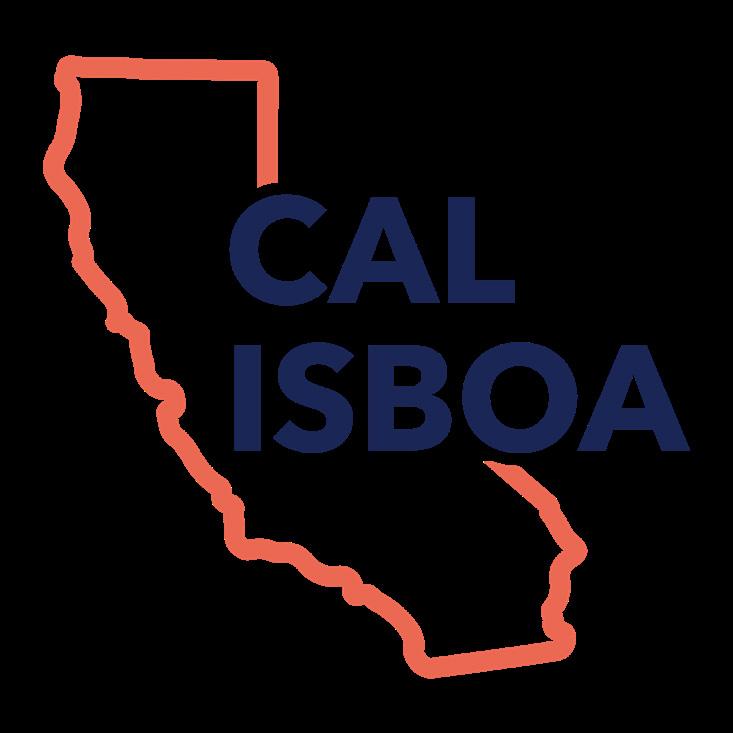
A group of children, represented by their guardians ad litem (i.e., persons that are appointed by the court so children can have their legal interests represented), brought a class action lawsuit against Google, as the owner of YouTube, due to Google’s data collection and marketing practices towards children.
By way of background, several popular toy and cartoon brands maintain YouTube “channels,” where the brands post content and run advertisements that are designed to appeal to young audiences. Google provides customized advertising to users based on information about each specific user. Tracking tools monitor user’s search history, video viewing history, personal contacts, browsing history, location information, and other information about users’ habits and preferences. Together, these pieces of information create a detailed “profile” of each user, which Google can use to provide customized advertising. Google’s targeted ad technology also uses “persistent identifiers,” created in part by tracking IP addresses, so that users and their detailed profiles can be recognized over multiple websites and online services.
A group of minor children brought suit against Google for using these persistent identifiers to collect data and secretly track their online behavior without their consent. All of the children’s claims were state law claims including invasion of privacy, unfair business practices, and consumer protection violations. At the same time, the children also alleged that the claims involved conduct that would violate the Children’s Online Privacy Protection Act (COPPA). COPPA does not authorize a private right to sue, but it allows the Federal Trade Commission (FTC) and state attorneys general to bring civil actions against companies.
Under COPPA, companies that operate websites and online services marketed towards children must provide certain disclosures about their data collection activities and must safeguard the confidentiality, security, and integrity of children’s personal online information. For example, COPPA has a requirement that child-directed online services give notice and obtain “verifiable parental consent” before collecting persistent identifiers,
Here, the children allege that the data collection practices violated COPPA. The children also allege that Google falsely represented that COPPA’s requirement did not apply to YouTube, reasoning that it was a platform for adults, even though Google knew that children use YouTube.
COPPA has a preemption clause. Preemption is a legal doctrine that provides that when state laws interfere with or are contrary to federal laws, the claims must be brought under federal law instead.
The trial court dismissed the children’s complaint, ruling that the claims had to be brought under COPPA rather than state law due to the preemption clause in COPPA. The children appealed.
The Court of Appeals considered the language in COPPA’s preemption clause, and found it to mean that if there are contradictory state law requirements or requirements that stand as obstacles to federal objectives, then there is a conflict between the state laws and COPPA, and COPPA must preempt the state law causes of actions. Here, the Court of Appeals determined that the state laws were not inconsistent with the purposes of COPPA. Rather, the conduct established fully stand-alone causes of action under state law, and more specific conduct that could violate COPPA. The Court of Appeals reversed the trial court’s ruling.
Jones v. Google, LLC (9th Cir. 2023) 73 F.4th 636.
Note: COPPA does not apply to nonprofits. However, private schools may have duties to comply with COPPA if information is collected by third party operators working with schools providing services to students.
• Beginning January 1, 2024, California’s minimum wage will increase from $15.50 per hour to $16 per hour for all employers, regardless of size. In cities and counties with their own higher local minimum wage rates, such as Berkeley, Los Angeles, and San Francisco, the higher local rate must be paid. Regardless of whether there is a local minimum wage, only the state minimum wage can determine the minimum salary requirements for exempt employees. Schools should be aware that this change may affect the minimum salary for employees and teachers to be exempt, and could impact employee contracts mid-year. Please contact LCW for guidance.
• The U.S. Equal Employment Opportunity Commission (EEOC) recently released an updated technical assistant document titled Visual Disabilities in the Workplace and the Americans with Disabilities Act (ADA). The document explains how the ADA applies to job applicants and employees with visual disabilities and addresses the types of reasonable accommodations applicants or employees with visual disabilities may need. The document also highlights new technologies for visual reasonable accommodations, many of which are free or low-cost.
• The EEOC released its proposed regulations for implementing the Pregnant Workers Fairness Act (PWFA), a new law that requires employers to make changes in the workplace to help employees who have pregnancy-related limitations perform their jobs. The proposed rule will provide schools and other employers with details about how the EEOC will enforce the PWFA, including how employers can offer reasonable accommodations to individuals with health issues related to pregnancy or childbirth. For more information about the PWFA, please see LCW’s article here
• The Departments of Education and Justice recently released two resources, a Dear Colleague Letter and a Questions & Answers resource, for colleges and universities to use in light of the Supreme Court’s recent case on affirmative action. These resources are meant to help colleges and universities understand the Supreme Court’s decision as they attempt to achieve a student body that is diverse across a range of factors, including race and ethnicity. The Questions & Answers resource, in particular, provides examples of steps colleges and universities can lawfully take, such as targeted outreach, recruitment, and pathway programs; evaluation of admission policies; and retention strategies and programs.
LCW represents and advises private schools and colleges in various business, construction, and facilities matters, including all aspects of construction projects from contract drafting and negotiations to course of construction issues. Through this Construction Corner, LCW will be giving private schools and colleges monthly helpful tips on a variety of topics applicable to campus construction projects. LCW attorneys are available should you have any questions or need assistance with any construction projects no matter what phase you may be in currently.
Under the California Civil Code, a design professional can be any of the following types of professions: a licensed architect, a licensed landscape architect, a registered professional engineer, or a licensed land surveyor. These types of individual professions plan and calculate the design and engineering of a particular construction project.

Schools who undertake construction will need to hire a design professional to prepare the detailed plans for the project. Once construction starts and the school provides the plans to the contractor, the school becomes responsible for any errors and omissions in those plans in any dispute with the contractor. Schools may want to consider hiring a designbuild contractor or hiring a contractor early on to coordinate with the design professional for a more integrated project delivery approach. When the design professionals and contractors are able to coordinate with each other early on, the project experiences fewer instances of miscommunication which can lead to costly change orders. Along with project managers and a contractor, a design professional is a critical component of the team that holds the success or failure of your construction project in their hands.
Generally, design professionals are hired after interviews and face-to-face meetings, as communication and a mutual understanding of the goals and limitations of your construction project are integral to the project’s eventual success. Design professionals draft the plans and specifications for the construction project and then assist with executing those details.
At the pre-design stage, the design professional will review local zoning and land-use restrictions and assess the project scope, neighborhood, and site conditions. The formation of design ideas and options arise from this early stage. Once the school selects the general design idea, the schematic phase begins. Here, the design professional will develop a design proposal that describes the project and its parameters. This includes floor plans, building elevations, and all structural, mechanical, electrical, plumbing and HVAC systems. The school should also be able to explore a range of alternative concepts proposed by the design professional. This is the phase where the school will want to provide all of its feedback and make design decisions so that the design professional can revise the design until it reflects a design that the school wants. Making changes after this stage can become costly to the school.
Next, the design professional builds out a more detailed plan during a design development phase. During this phase, the design professional works with a cost estimator and a structural engineer who provide details, materials, finishes, equipment, fixtures, and cost estimates for the project. This stage also involves some back and forth with the school to ensure that the project is within the school’s budget.
The final phase of the beginning of a construction project is the construction documents phase, wherein the design professional drafts construction documents which describe the quality, configuration, size, and relationship of the components and overall project. The construction documents are submitted to the city or county for review and to obtain a building permit. The timing for securing a building permit can vary greatly depending on the specific city or county and the project size. For private schools in California, design professionals must ensure that their plans comply with the Private Schools Building Act of 1986, which requires the following:
• “School construction plans be prepared under the responsible charge of California-licensed architects, civil engineers or structural engineers;
• Designs and plans be checked by the enforcement agencies using structural engineers, either on staff or under contract, that are responsible for all design review;
• During construction or alteration of a school structure, special inspections by qualified inspectors when need is determined by the enforcement agencies. Continuous inspection is not required;
• Jurisdictions that do not have an enforcement agency meeting the requirements of the Act obtain necessary qualified personnel to meet the requirements by contracting with other public agencies, private sector firms or individuals qualified to perform the necessary services;

• The projects’ architects, civil engineers or structural engineers exercise general responsibility over construction for compliance with the approved plans. If they are unable, other architects, civil engineers or structural engineers shall be retained to exercise general responsible charge of construction. Any person who willfully violates the Act is guilty of a misdemeanor.”
(See p. 7 of https://ssc.ca.gov/wp-content/uploads/sites/9/2020/08/cssc_2004-04_school_safety.pdf.)
The design professional will also deliver a construction set of the construction documents to the contractor to use during construction. Once construction begins on a project, design professionals will help oversee various aspects of the construction process. Specifically, a design professional may be tasked with responding to requests for information that the contractor submits when it has questions about the design, reviewing and certifying applications for payment, attending project meetings, certifying the progression of the work, reviewing and responding to change order requests and other submittals, and acting as an initial decision maker if there is a dispute during the project. The key to a project’s success is hiring a qualified design professional with relevant experience and fostering continued collaboration and communication from inception of the design through project completion.
For more information on some of our upcoming events and trainings, click on the icons:



File Verification of Private School Instruction
• Every person, firm, association, partnership, or corporation offering or conducting private school instruction on the elementary or high school level shall between the first and 15th day of October of each year, file with the Superintendent of Public Instruction an affidavit or statement, under penalty of perjury, by the owner or other head setting forth the following information for the current year:
(a) All names, whether real or fictitious, of the person, firm, association, partnership, or corporation under which it has done and is doing business.
(b) The address, including city and street, of every place of doing business of the person, firm, association, partnership, or corporation within the State of California.
(c) The address, including city and street, of the location of the records of the person, firm, association, partnership, or corporation, and the name and address, including city and street, of the custodian of such records.
(d) The names and addresses, including city and street, of the directors, if any, and principal officers of the person, firm, association, partnership, or corporation.
(e) The school enrollment, by grades, number of teachers, coeducational or enrollment limited to boys or girls and boarding facilities.
(f) That the following records are maintained at the address stated, and are true and accurate:
1. The attendance of the pupils in a register that indicates clearly every absence from school for a half day or more during each day that school is maintained during the year (Education Code Section 48222).
2. The courses of study offered by the institution.
3. The names and addresses, including city and street, of its faculty, together with a record of the educational qualifications of each.
(g) Criminal record summary information of applicants that have been obtained pursuant to Section 44237.
• We recommend that performance evaluations be conducted on at least an annual basis, and that they be completed before the decision to continue employment for the following school year is made. Schools that do not conduct regular performance reviews have difficulty and often incur legal liability terminating problem employees - especially when there is a lack of notice regarding problems.
Consider using Performance Improvement Plans but remember it is important to do the necessary follow up and follow through on any support the School has agreed to provide in the Performance Improvement Plan.
Compensation Committee Review of Compensation before issuing employee contracts
• The Board is obligated to ensure fair and reasonable compensation of the Head of School and others. The Board should appoint a compensation committee that will be tasked with providing for independent review and approval of compensation. The committee must be composed of individuals without a conflict of interest.
Review employee health and other benefit packages, and determine whether any changes in benefit plans are needed.
If lease ends at the end of the school year, review lease terms in order to negotiate new terms or have adequate time to locate new space for upcoming school year.
Review tuition rates and fees relative to economic and demographic data for the School’s target market to determine whether to change the rates.
Review student financial aid policies.
Review, revise, and update enrollment/tuition agreements based on changes to the law and best practice recommendations.
File all tax forms in a timely manner:
Forms 990, 990EZ
• Form 990: Tax-exempt organizations must file a Form 990 if the annual gross receipts are more than $200,000, or the total assets are more than $500,000.
• Form 990-EZ: Tax-exempt organizations whose annual gross receipts are less than $200,000, and total assets are less than $500,000 can file either form 990 or 990-EZ.
• A School below college level affiliated with a church or operated by a religious order is exempt from filing Form 990 series forms. (See IRS Regulations Section 1.6033-2(g)(1)(vii)).
• The 990 series forms are due every year by the 15th day of the 5th month after the close of your tax year. For example, if your tax year ended on December 31, the e-Postcard is due May 15 of the following year. If the due date falls on a Saturday, Sunday, or legal holiday, the due date is the next business day.
• The School should make its IRS form 990 available in the business office for inspection.
Other required Tax Forms common to business who have employees include Forms 940, 941, 1099, W-2, 5500
Annual review of finances (if fiscal year ended January 1st)
• The School’s financial results should be reviewed annually by person(s) independent of the School’s financial processes (including initiating and recording transactions and physical custody of School assets). For schools not required to have an audit, this can be accomplished by a trustee with the requisite financial skills to conduct such a review.
• The School should have within its financial statements a letter from the School’s independent accountants outlining the audit work performed and a summary of results.
• Schools should consider following the California Nonprofit Integrity Act when conducting audits, which include formation of an audit committee:
Each month, LCW presents a monthly timeline of best practices for private and independent schools. The timeline runs from the fall semester through the end of summer break. LCW encourages schools to use the timeline as a guideline throughout the school year.
Although the Act expressly exempts educational institutions from the requirement of having an audit committee, inclusion of such a committee reflects a “best practice” that is consistent with the legal trend toward such compliance. The audit committee is responsible for recommending the retention and termination of an independent auditor and may negotiate the independent auditor’s compensation. If an organization chooses to utilize an audit committee, the committee, which must be appointed by the Board, should not include any members of the staff, including the president or chief executive officer and the treasurer or chief financial officer. If the corporation has a finance committee, it must be separate from the audit committee. Members of the finance committee may serve on the audit committee; however, the chairperson of the audit committee may not be a member of the finance committee and members of the finance committee shall constitute less than one-half of the membership of the audit committee. It is recommended that these restrictions on makeup of the Audit Committee be expressly written into the Bylaws.

Members of Liebert Cassidy Whitmore’s consortiums are able to speak directly to an LCW attorney free of charge to answer direct questions not requiring in-depth research, document review, written opinions or ongoing legal matters. Consortium calls run the full gamut of topics, from leaves of absence to employment applications, student concerns to disability accommodations, construction and facilities issues and more. Each month, we will feature a Consortium Call of the Month in our newsletter, describing an interesting call and how the issue was resolved. All identifiable details will be changed or omitted.
A school administrator in Oakland asked whether they were required to pay an employee for COVID-19 leave, even though California’s Supplemental Paid Sick Leave program expired in December 2022.
The attorney advised the school that although the California Supplemental Paid Sick Leave program expired in December and California is no longer in a state of emergency, a handful of cities, including Oakland, still have their local Supplemental Paid Sick Leave ordinances in effect. Oakland's Supplemental Paid Sick Leave is tied to Oakland's declaration of a COVID-19 state of emergency, and in February, the Oakland City Council renewed the COVID-19 state of emergency indefinitely. The attorney advised that the school, and all schools in Oakland, should continue to provide paid leave under Oakland’s Supplemental Paid Sick Leave law.

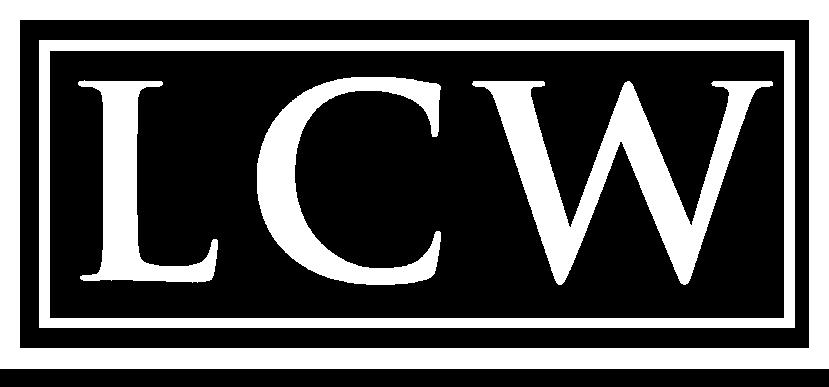 Liebert Cassidy Whitmore
Liebert Cassidy Whitmore